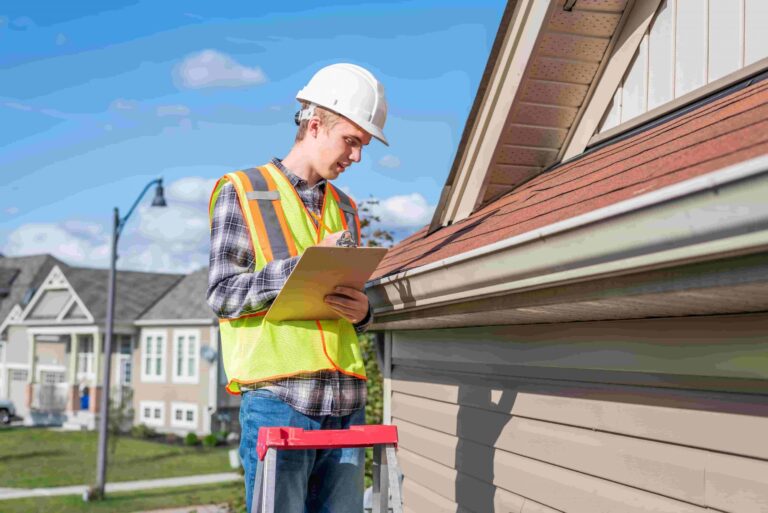7 Best AI Tools For Masons
Understanding AI Tools in Masonry
In the evolving landscape of construction, artificial intelligence (AI) and machine learning (ML) tools are reshaping the masonry industry. These advanced technologies enhance accuracy, safety, and efficiency on construction sites.
AI and Machine Learning Fundamentals
Artificial intelligence in masonry refers to machines programmed to make decisions and perform tasks that traditionally require human intelligence. Machine learning, a pivotal subset of AI, involves algorithms that enable software to improve performance over time without being explicitly programmed. For masons, ML can predict material requirements and project timelines with greater precision, leading to cost-efficiency and minimized waste.
Transformative Power of AI in the Construction Industry
AI’s transformative power lies in its ability to automate complex processes and analyze vast amounts of data swiftly. In the construction industry, AI construction software is being leveraged to optimize project planning, resource allocation, and quality control. This helps in the early detection of potential structural issues and streamlines the construction process.
AI tools have the potential to transform masonry work from the ground up, enhancing both designs through AI-powered design software and practical construction through robotic process automation. From analyzing site conditions to predicting equipment maintenance, AI’s versatility is making a mark in this age-old craft.
Key AI Technologies for Masons
Masons can leverage a variety of AI technologies to enhance their craft and productivity. Computer vision for pattern recognition, AI software using natural language processing, and generative AI for design are at the forefront of these innovations. These tools not only optimize workflows but also open new possibilities in masonry design and management.
Computer Vision and Pattern Recognition
AI leverages computer vision to identify and classify patterns and defects in masonry work. This technological arm is capable of inspecting and assessing the quality of stone and brickwork. By recognizing patterns, AI systems can detect inconsistencies or potential structural issues that may not be visible to the naked eye. This helps in maintaining the integrity and longevity of the construction.
Natural Language Processing and AI Software
AI software equipped with natural language processing (NLP) allows for more efficient communication and project management in masonry. These tools can interpret construction commands and documentation, parsing through vast amounts of data to provide relevant information. From understanding client inquiries to processing technical specifications, NLP bridges the gap between complex masonry terminology and actionable insights.
Generative AI and Design Capabilities
Generative AI has revolutionized the design capabilities of masons. With generative AI, professionals can create intricate and bespoke patterns for clients, which are both structurally sound and aesthetically pleasing. Such AI systems can generate numerous unique designs from a set of parameters, significantly speeding up the design phase and offering clients a portfolio of options to choose from.
AI Applications for Masonry Workflows
Artificial Intelligence (AI) is increasingly becoming integral to optimizing masonry workflows. It enhances equipment maintenance and streamlines communication, drastically changing how tasks are managed in the construction industry.
Predictive Analytics and Equipment Maintenance
AI enables masons to anticipate equipment failure before it occurs through predictive analytics. By analyzing usage patterns and performance data, AI systems can forecast when masonry tools might require maintenance, potentially minimizing downtime and extending the longevity of vital equipment. This use of AI not only optimizes material usage, but also reduces waste, creating a more efficient workflow.
Example:
- Predictive Maintenance: Masonry workers use AI algorithms to determine the optimal time for tool servicing, preventing unexpected breakdowns.
Virtual Assistants and Communication
In the realm of communication, virtual assistants—powered by AI—are revolutionizing interactions and support within the masonry industry. These AI-driven chatbots can handle inquiries and provide immediate assistance or information, thus automating routine tasks that otherwise consume valuable time. The integration of virtual assistants into communication channels offers a dual benefit: streamlining workflow and enhancing productivity tools.
Example:
- Chatbots for Immediate Response: Virtual assistants promptly address FAQs, allowing masons more time to concentrate on their craft.
Improving Design and Planning with AI
Artificial Intelligence is transforming how architects and designers approach the creation of floor plans and visualizations, providing tools that significantly enhance the accuracy and efficiency of design and planning phases.
3D Modeling and Photorealistic Rendering
AI-based 3D Modeling tools enable architects to construct complex structures in a virtual environment with ease. These tools allow for the quick generation of detailed floor plans and the creation of photorealistic renderings that can showcase a proposed design in lifelike detail.
- Features: Feature Benefit AI-generated layouts Accelerates the creation of floor plans Rapid prototyping Facilitates design iteration without extensive manual effort Real-time feedback Ensures designs meet specifications and client wishes
Photorealistic rendering powered by AI not only enhances visual communication between the architect and the client but also aids in spotting potential design issues before the construction phase begins. This capability can drastically cut down the time needed to finalize designs, turning what used to take weeks into a matter of hours.
Virtual Reality and Interactive Floor Plans
Virtual Reality (VR) in architectural design has shifted the representation of floor plans from static images to immersive experiences. Designers can now walk clients through a virtual model of their proposed space, making it easier for clients to visualize and suggest modifications.
- Advantages:
- Enhanced Client Experience: Clients can experience a space before it’s built.
- Detailed Interaction: Architects can interact with design elements to test different layouts and options within a virtual environment.
The integration of AI with VR has led to smarter interactive floor plans, where changes in design are reflected instantaneously across the visualization, offering a dynamic and engaging way to experience and refine architectural designs. This represents a substantial step forward in terms of efficiency and client engagement for the architectural industry.
Enhancing Collaboration and Project Management
In the field of masonry, leveraging AI tools significantly boosts collaboration among teams and streamlines project management. These tools foster more precise coordination at the construction site and ensure timely updates, which is crucial for project success.
AI-powered Collaboration Platforms
AI-powered collaboration platforms are revolutionizing how masons coordinate on projects. They provide real-time communication across various devices, which is essential in the dynamic environment of a construction site. For instance, Slack with its AI-driven bots helps in scheduling, setting reminders, and facilitates instant messaging for prompt team interaction and issue resolution.
Efficient Project Management through AI
AI technologies have been game-changers in masonry project management. They bring efficiency to complex processes like resource allocation and task scheduling. Tools like Wrike introduce AI features that assist masons in prioritizing tasks based on urgency, which optimizes workflow and ensures that critical project milestones are met. Moreover, predictive analytics used in these tools can forecast potential delays, allowing for proactive adjustments to the project timeline.
AI-Driven Quality and Performance Metrics
In the masonry industry, leveraging AI tools for assessing quality and performance metrics can significantly enhance project outcomes. These intelligent systems provide deep insights through robust data analysis and continuous monitoring of quality and safety standards on site.
Insights through Data Analysis
AI tools enable masons to transform raw data into actionable insights. Through advanced algorithms, these tools assess various quality and performance metrics like adherence to project specifications and efficiency rates. For example, they can detect patterns in material usage that may indicate potential structural weaknesses or predict project delays based on weather data trends. Masons can rely on this information to make informed decisions that optimize performance.
Monitoring Quality and Safety on Site
On-site safety and quality control are paramount in masonry. AI-driven tools help in real-time monitoring and analysis of site conditions to ensure that safety protocols are adhered to. Metrics such as the number of accidents, near-misses, or deviations from safety procedures are analyzed, offering a clear overview of safety performance. Additionally, these tools inspect the precision of workmanship, ensuring that each brick or stone aligns with the quality standards set forth for the project.
Continual Learning and Masonic Tradition
In an age where technology and tradition intersect, Freemasonry continues to uphold its dedication to education and personal growth by adopting advanced tools. Artificial Intelligence (AI) stands as a pivotal innovation that transforms the way Masons learn and preserve their storied heritage.
Integrating AI with Masonic Education
The integration of AI within the realm of Masonic education is reshaping how members approach learning. AI tools are designed to personalize the experience of studying Masonic values and principles, thereby enhancing one’s journey of knowledge. For example, platforms employing algorithms can suggest customized reading materials, or digital assistants might help in understanding complex Masonic symbols and traditions.
AI and the Preservation of Brotherhood and Rituals
AI’s role in safeguarding the brotherhood and rituals of Freemasonry is multifaceted and profound. Through virtual meeting spaces, AI enables Masons to maintain the bonds of fraternity without geographic constraints. Ritual practice software can help members to rehearse and remember their parts, preserving the integrity of age-old ceremonies. Additionally, the digital archiving of Masonic documents ensures that the treasured history and customs are protected for future generations.
Frequently Asked Questions
In the masonry sector, Artificial Intelligence (AI) has emerged as a transformative force, addressing efficiency and accuracy challenges. This section answers common inquiries about AI tools that are reshaping the masonry industry.
What AI tools are recommended for improving efficiency in masonry?
AI tools tailored for efficiency in masonry often include software that optimizes planning and task allocation. Spacely AI is known for its intuitive interface that saves time during the design phase.
Which free AI applications can enhance productivity for masonry businesses?
Masons in search of cost-effective AI solutions may explore open-source platforms that assist with data analytics and project visualization. However, specific free AI applications tailored to masonry are less common.
What are the top-rated AI solutions for project management in the construction industry?
Project management in construction greatly benefits from AI solutions that streamline scheduling and resource allocation. Tools like Mason leverage AI to improve data analysis and decision-making processes.
How can masons leverage AI for better material estimation and cost planning?
AI-driven tools offer advanced algorithms to predict material requirements and cost implications with greater precision. This helps masons plan budgets and timelines more effectively.
What AI software offers the best features for design and visualization in masonry?
For design and visualization, Homestyler stands out as an all-in-one tool, enabling masons to create detailed, accurate representations of their projects before construction begins.
Which AI platforms provide the most value for small to medium-sized masonry enterprises?
Smaller masonry businesses benefit from AI platforms that offer scalability and ease of use without the need for extensive IT infrastructure. Solutions that facilitate quick data query and analysis can be particularly valuable.






